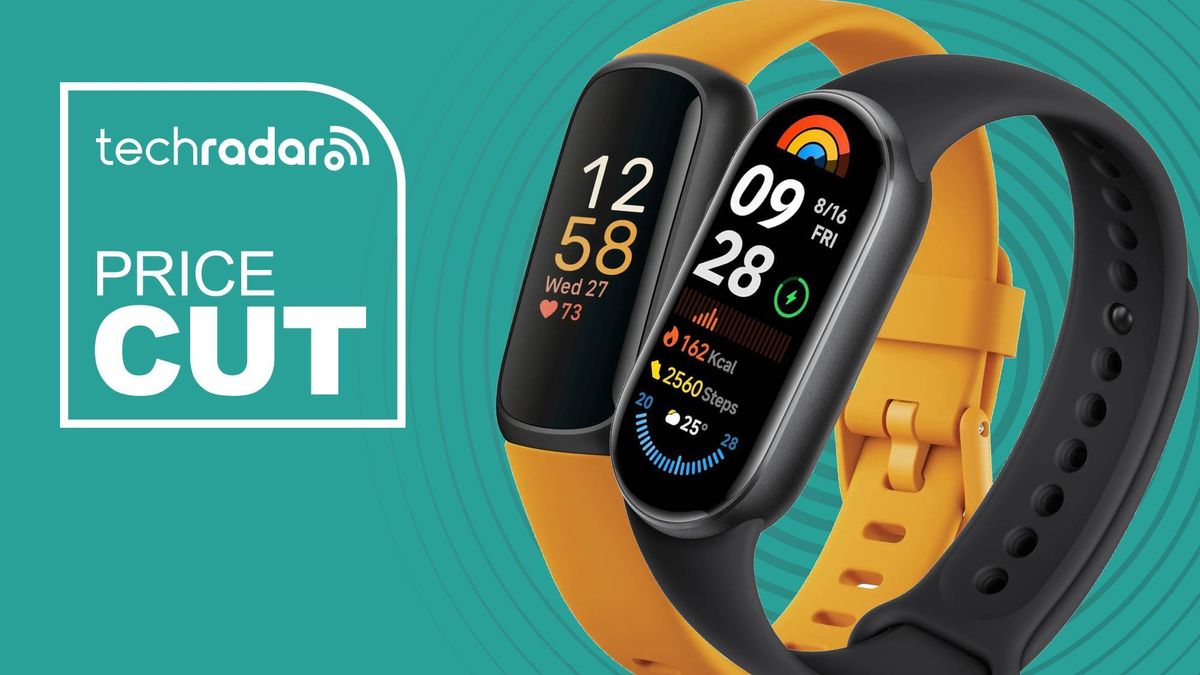Bussiness
Behind the scenes of the Trump movie Trump doesn’t want you to see
- “The Apprentice” is a compelling movie about Donald Trump’s early years, written by Vanity Fair’s Gabriel Sherman.
- It is also not flattering to Trump.
- Earlier this year the film’s financial backers decided they didn’t want to release it. It just barely made it to theaters.
Who wants to see a movie about Donald Trump?
Gabriel Sherman thinks you do: Sherman is a longtime Vanity Fair journalist who wrote and produced “The Apprentice.” It’s a Trump biopic that focuses Trump’s first ascent, in New York City in the 1970s and ’80s, and his connection with Roy Cohn, the disbarred lawyer who mentored Trump.
In Sherman’s dramatization, Trump is played by Sebastian Stan, best-known to most moviegoers as Bucky Barnes in the Marvel movies. Cohn is played by “Succession’s” Jeremy Strong. They’re both quite great and if I were a professional film critic, I’d tell you to go see the movie in theaters when it opens Friday.
But just a few weeks ago, it wasn’t clear if you’d be able to see “The Apprentice” at all. That’s because of a twisty backstory involving gun-shy Hollywood studios, a fledgling producer, and his father-in-law: Dan Snyder, a billionaire Trump supporter who initially bankrolled the movie.
Trump eventually sent Sherman a cease-and-desist letter telling him not to show the movie; a Trump spokesman now calls the film “garbage” and “pure fiction which sensationalizes lies that have been long debunked.”
Sherman told me the story in the newest episode of my Channels podcast, but you can read an edited excerpt of our conversation here:
This is not a pro-Trump movie. But it also humanizes Trump, and creates a three-dimensional character that has flaws and maybe even some upsides. How did you think about describing him as a person who might have positive attributes — and how an audience might think about that in 2024?
I’ve really been surprised, and I’ve struggled to understand this discussion around why it would be controversial to humanize Donald Trump.
It’s the same reason some people say you shouldn’t platform Donald Trump.
I disagree with that line of thinking.
He’s somebody that is in our lives. He’s real. He’s not an alien from outer space. He is a flesh-and-blood person. And to try to understand him as a person without shying away and whitewashing any of his flaws, I think is one of the necessary things of both journalism, but also art and drama.
I’m relentlessly curious about people I might vehemently disagree with. I did extensive writing about [former Fox News head] Roger Ailes and Fox News. And obviously, I didn’t share any of Ailes’ politics. But I was obsessed with trying to understand how somebody like that could exist.
When I did the research for this film [I found] this awesome, incredible interview on YouTube that we recreate in the film. It’s Donald Trump’s first national TV interview, from 1980. The Trump you see then is soft-spoken. He’s articulate, he’s charming. It has almost no resemblance to the character that we see today on our TV screens all the time.
So it really got me thinking — how did that person become this egomaniacal orange maniac that we see every day? I wanted to connect those dots.
You got a Trump supporter to fund this movie, which in no way is a movie a Trump supporter would want to see, let alone fund. How did that happen?
Before we got financing to make this movie last year, nobody would make this movie. None of the major studios would finance the production of the film. So we had to raise money as a totally independent feature.
Last year, we partnered with a production company called Kinematics, which is run by a young producer named Mark Rapaport. He’s married to the daughter of the Republican billionaire Dan Snyder. [Kinematics declined to comment.]
The former owner of the Washington NFL team.
Yes. Kind of a notorious figure in the NFL world. And Dan Snyder loaned Mark Rapaport money to support his production company. And so indirectly, a Republican Trump donor’s money was paying for the production of this movie.
Which you were aware of. And must have enjoyed?
We obviously had many conversations with our financiers to make sure that there wouldn’t be a conflict. The nightmare scenario would be that we shoot this movie and then Dan Snyder hates the movie and somehow is able to block it. Which basically is what ended up happening.
So Snyder gives his son-in-law money to fund this production company, and his son-in-law says “I’m going to use some of that money to fund this Trump movie, which is not explicitly an anti-Trump movie, but is definitely not a pro-Trump movie.” Do you think that Dan Snyder understood what he was funding?
Unclear. I know he did not read the script. So the degree to which he understood the substance of the movie, I’m just not clear on.
We wrapped production at the end of January of 2024. And Mark Rapaport, the Kinematics owner, basically tried to block the movie. He didn’t like the cut. He didn’t like especially the sexual assault scene with Ivana. He showed it to Dan Snyder. Dan walked out of the screening room. He hated the movie. So basically, a sort of cold war between us and our financier had started in the spring of 2024, before we took it to Cannes.
You brought a movie to Cannes knowing that the people who were funding it didn’t want it to be shown?
Yeah. And they tried to block us from going to Cannes. They didn’t have the right to do that, because we had sold the movie to a French distributor who had the legal right to show it in France. But yeah — this was already playing out prior to Cannes. And it just sort of snowballed after the festival.
This seems like a true half-empty, half-full situation. On the one hand, the people who’ve put up the money to make the movie are trying their best to make it not happen. But this is also a controversy that sells the movie. How close were you to the half-empty versus half-full take throughout the summer?
Totally empty. At the end of August, I went to the Telluride Film Festival not even knowing if our movie would screen because if we did not get Kinematics to back down and let us buy them out and move forward, they would have stopped the movie from being released in America before the election. And then it’s unclear what its commercial prospects would be after the election. It would be so uncertain who would ever want to buy the movie at that point.
This will sound pretty cavalier from me, but: It seems like if there’s an “unseeable Trump movie” that is going to immediately make people demand to see it.
Of course. But in the middle of it, we had to take it day by day. For my wife and I, it was like this emotional roller coaster. Every single day for the month of August, I would check in with my producers: “What’s going on with the talks? What are the lawyers saying?” It was all being done through lawyers. It was such a nerve-racking process because it was so out of my hands.
And yes, it all worked out. And people will be able to see this movie. But if anyone wants to get into show business and make a movie, I don’t recommend doing it this way.
You said you were surprised none of the major studios and distributors wanted to pick it up. Was that really a surprise to you?
I thought somebody would. Maybe not a giant publicly traded media conglomerate. But there are risk-taking studios, independently owned studios: A24, Neon. I even thought Amazon/MGM — Jeff Bezos owns The Washington Post. He doesn’t really have any tolerance for Trump’s mishegoss. I just thought there would be a deep-pocketed buyer in Hollywood that would see this as a real moment to stand up for artistic freedom.
And you think that there wasn’t because people are afraid of repercussions from a future Trump administration? Or that they’re worried about having a Bud Light moment?
I wasn’t in the room, so I don’t know what specific feedback specific buyers had. But the general consensus I heard was a version of No. 1.
These companies were worried that if Trump did become president, that he could use the regulatory power of the government — whether it’s the FCC, or the Justice Department, or the FTC — to go after their businesses in some way.
And we saw a precedent for this: Trump tried to block the AT&T-Time Warner merger during his first term because he was reportedly unhappy with the way CNN, which is owned by Time Warner, was covering him.
His DOJ antitrust guy insists up and down that this was not the case.
Regardless of whether that was true or not, the end result was that other companies in Hollywood saw that precedent and basically said, “This is not worth it to us.”
And even though I’m disappointed by it, I can understand it. I mean, if you’re running a company and you’re thinking, “Well, I could acquire this one movie and maybe make some money, but then I’m going to have to be dealing with lawyers and regulatory bullshit for the next three years.” I mean, I can understand it.
And I think that’s what’s so chilling. Trump talks a lot about “weaponization of government.” This is a very specific case where he has now influenced the corporate and creative decisions of these Hollywood companies to basically chill content that he would object to.









